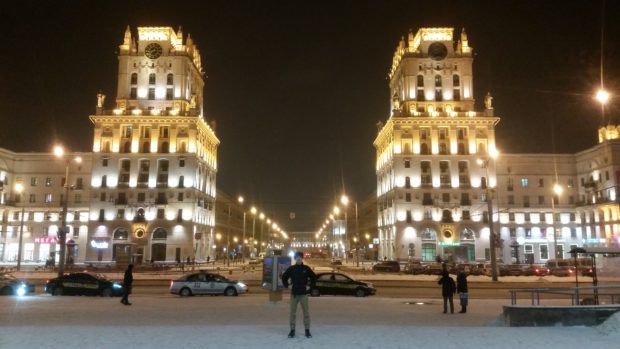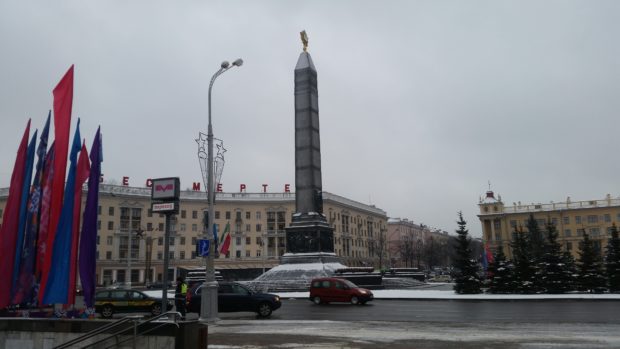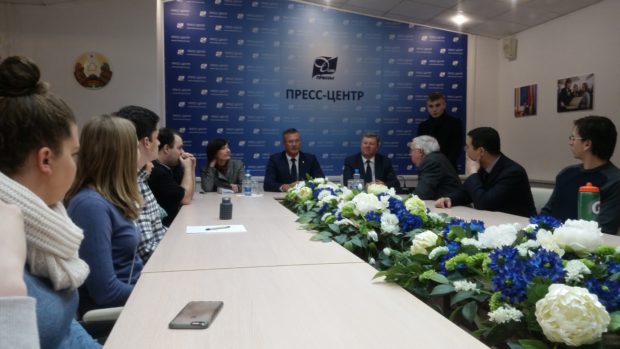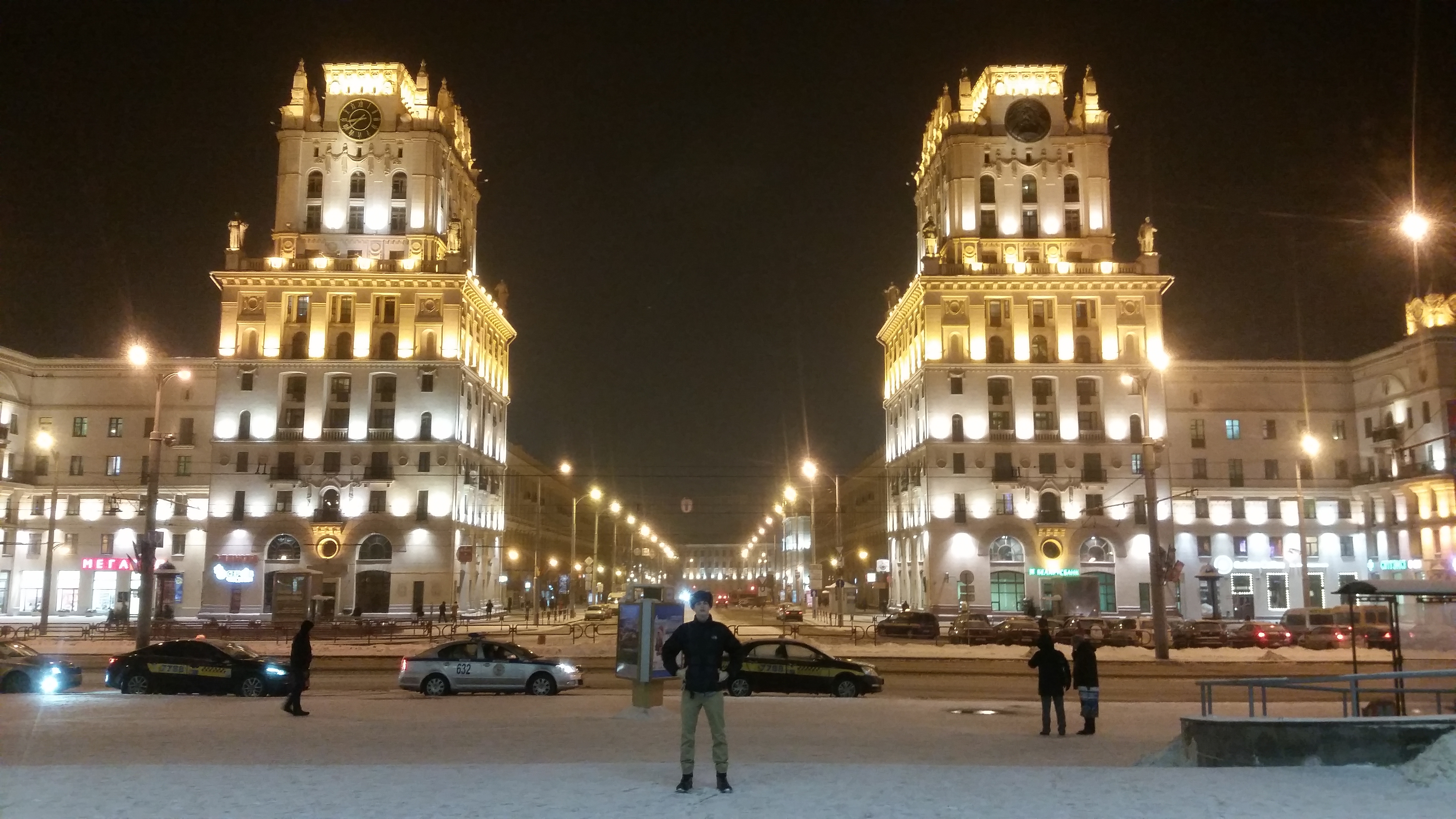
MINSK, Belarus — As I walked under a large hammer and sickle proudly displayed in Minsk’s drab metro tunnel, I contemplated President-elect Trump’s provocative press conference the night before.
He had again stoked the fires and poked at the media organizations after yet another fake news scandal. I found it ironic that fake news and an outrageous president are the greatest threats to long-trusted U.S. networks while I was about to walk into a fake news factory controlled by an authoritarian dictator: the Belarusian Press House.
A little background. Belarus, the second stop on my study abroad trip, is the last authoritarian regime in Europe under President Lukašenka. Belarus was a manufacturing powerhouse under the Soviet Union and has clearly preserved the Soviet legacy in both architecture and governance. Lenin’s statue is proudly displayed in the main square, and the KGB is still an active intelligence agency here. Freedom House rates Belarus as strictly not free, with press ranked as “one of the most hostile in Europe.”

It’s in this context that I and 21 other students were packed into the conference room of a gray concrete building called the Press House. At the head of the table sat the director of the state’s largest newspaper Soviet Belarus as well as the host of a highly influential talk show and other representatives.
After a brief introduction from the media representatives the floor opened up for questions and my chance to ask how the news is run under a dictatorship.
The state has a monopoly on distribution of newspapers and complete control of TV broadcasts. The result is not news. It’s propaganda. Opposing viewpoints are not shown and no criticism of the government, frequently chastised by the UN for human rights violations, is allowed, according to Freedom House. Any journalists that attempt to break from the party lines are harassed by state security forces.

So when I had a chance to ask questions, I did.
“What role does independent media play in Belarus? Is there a need for opposing viewpoints from independent media? Are there any topics that you won’t cover? Is there a need for freedom of press?”
What I learned is exactly what I expected. The Belarusian media “journalists” are masters of spin. Every question was redirected, avoided, denied or met by another questions or accusation of western schemery intent on destabilizing Lukašenka. Truth and honesty were not on the table.
For example, when a classmate asked “Does your audience trust you?”
The response from the director of Soviet Belarus was “It depends what you mean by trust” followed by a lengthy description of how they show the people what people like to watch. Which, based on every public TV I saw, are music videos. Not news.
This visit put things in perspective for me. Of course the U.S. media is going through turmoil right now struggling to deal with fake news and aggressive politics, but hey, it could be worse. As long as we have a plethora of diverse, bold storytellers keeping each other and the state accountable and consumers willing to be critical freedom of information will stay strong.
Simeon Lancaster can be reached at lanc4637@stthomas.edu.

